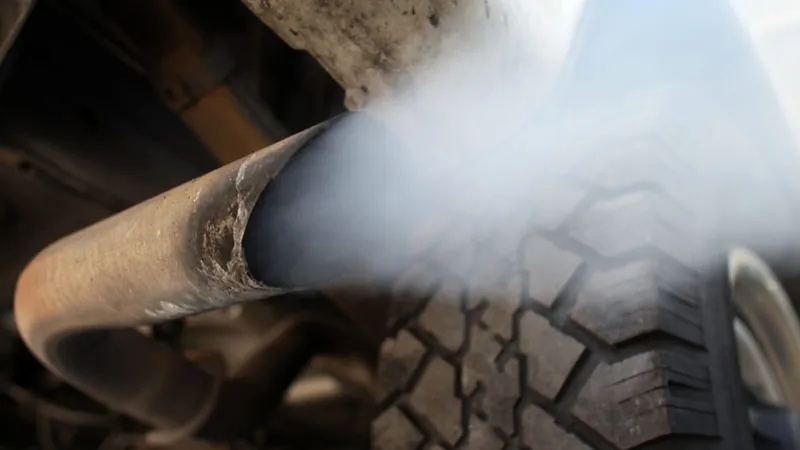
Trump's EV Policy Reversal: A Major Setback for Electric Vehicles
2024-12-16
Author: Chun
Introduction
The anticipated Trump administration is gearing up for a significant rollback of electric vehicle (EV) initiatives, revealing plans that could hinder the progress of EV adoption far beyond what was initially expected. Internal transition team documents obtained by Reuters suggest that the Trump administration is poised to eliminate EV subsidies, withdraw federal funding allocated for charging infrastructure, impose restrictions on EV battery imports citing national security concerns, and cease federal purchases of electric vehicles, including for the military.
The Threat of Increased Emissions
The incoming administration is expected to revert EPA fuel efficiency standards to those from 2019, essentially allowing a 25% increase in tailpipe emissions from new vehicles. The emission levels had stagnated between 2008 and 2019 until Biden's administration instituted stricter rules. This reversal could lead to more pollution on American roads, sparking concerns from environmental advocates and public health experts alike. Moreover, several states, particularly those aligned with the California Air Resources Board, are looking towards more stringent emissions regulations. Should the EPA grant California a waiver, these 'ZEV states' will require that one-third of new cars sold be battery electric by model year 2026.
Trade Tariffs and Manufacturing Roadblocks
Expect the next Trump team to leverage trade tariffs as a significant tool against EV manufacturing. While the current Biden administration has already imposed tariffs on Chinese-made EVs as a protective measure, Trump's administration plans to escalate this strategy globally, targeting battery materials under the guise of national security. This could drastically inflate the cost of new electric vehicles. The previously established $7,500 federal tax credit for clean vehicles could be scrapped entirely under Trump, discouraging EV purchases at a critical moment when widespread adoption is crucial. Additionally, the administration intends to reclaim portions of the $7.5 billion allocated for charging stations under the Inflation Reduction Act, potentially stalling the expansion of necessary infrastructure. To speed up EV charger deployment, the new administration may eliminate environmental review processes, despite potential risks associated with hasty construction of such infrastructure. There are growing concerns that this could lead to more environmental degradation without the necessary checks.
End of EV Regulations for Government Fleets
Under the Trump presidency, expectations are that the federal government will regress in its commitment to purchasing electric vehicles. The current requirement mandates that the federal fleet transition to zero-emission vehicles by 2027. Trump is expected to dismantle these requirements entirely, along with halting any Department of Defense programs that focus on electric military vehicles.
Conclusion
As the landscape for electric vehicle adoption becomes increasingly uncertain, experts warn that these developments could have long-lasting implications for the environment and public health. The shift in policy could stall the advancements made in clean transportation, setting the U.S. back in the global race towards sustainable energy solutions. The implications of these decisions resonate deeply—not just for the auto industry but also for climate change efforts nationally and globally. Buckle up, as the future of EVs hangs in the balance!



 Brasil (PT)
Brasil (PT)
 Canada (EN)
Canada (EN)
 Chile (ES)
Chile (ES)
 España (ES)
España (ES)
 France (FR)
France (FR)
 Hong Kong (EN)
Hong Kong (EN)
 Italia (IT)
Italia (IT)
 日本 (JA)
日本 (JA)
 Magyarország (HU)
Magyarország (HU)
 Norge (NO)
Norge (NO)
 Polska (PL)
Polska (PL)
 Schweiz (DE)
Schweiz (DE)
 Singapore (EN)
Singapore (EN)
 Sverige (SV)
Sverige (SV)
 Suomi (FI)
Suomi (FI)
 Türkiye (TR)
Türkiye (TR)